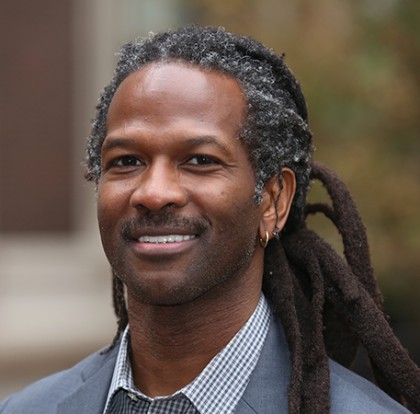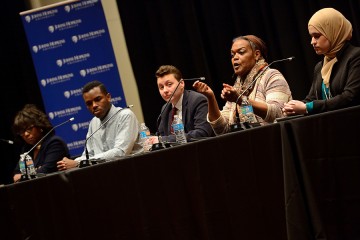Carl Hart, driven by his scientific research on the effects of drugs on the brain, believes that drug policy in the United States is used to perpetuate racial discrimination.

Image caption: Carl Hart
Hart, chair of the Department of Psychology at Columbia University, has published nearly 100 scientific articles in the area of neuropsychopharmacology. He is co-author of the textbook Drugs, Society and Human Behavior with Charles Ksir, and his most recent book—High Price: A Neuroscientist's Journey of Self-Discovery That Challenges Everything You Know About Drugs and Society—was the 2014 winner of the PEN/E.O. Wilson Literary Science Writing Award.
Hart will visit Johns Hopkins University on April 18 to give a talk titled "Drug Policy is Race Policy." The event, part of the JHU Forums on Race in America series, will be held at 7 p.m. in Mason Hall. Advance registration is required; there is no cost to attend. A live broadcast will be available on the Johns Hopkins Ustream channel.
Hart's talk will focus on how drugs are vilified based on perceptions about who uses them.
"U.S. drug policy serves to further marginalize those on the margins," Hart said. "The quicker we dispense with the notion that it's based on pharmacology, the clearer we can see the racial discrimination that drives the enforcement of drug laws."
Lester Spence, an associate professor of political science at Johns Hopkins and a member of the race forums steering committee, said Hart adds an important perspective to the series.
"If Dr. Hart didn't contribute anything more to American society than the knowledge that the 'crack baby' is a political construction, that the effects of crack-cocaine are similar to the effects of other drugs, then he'd still be worthy of worldwide acclaim," Spence said. "These two myths have done more damage to urban communities—particularly communities in cities like Baltimore—than can we can possibly calculate."
This is the final event of the race forums series for the 2016-17 academic year. Other events in the series have focused on the future of black power movements, Latinos in America, and most recently, race, intersectionality, and millennial social activism.










